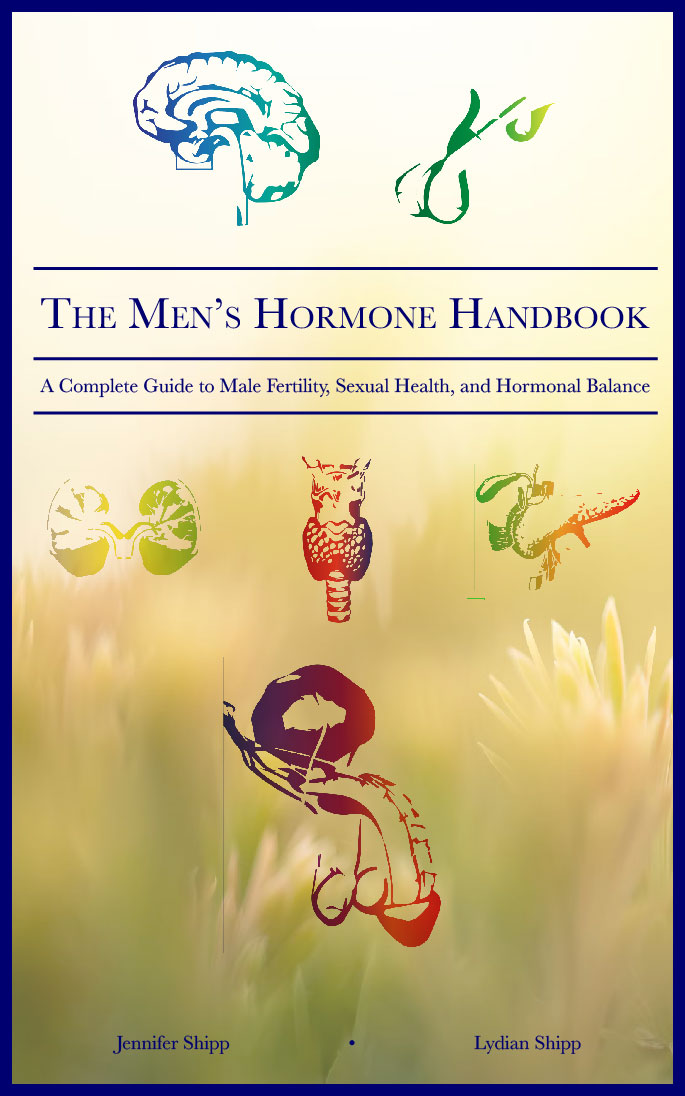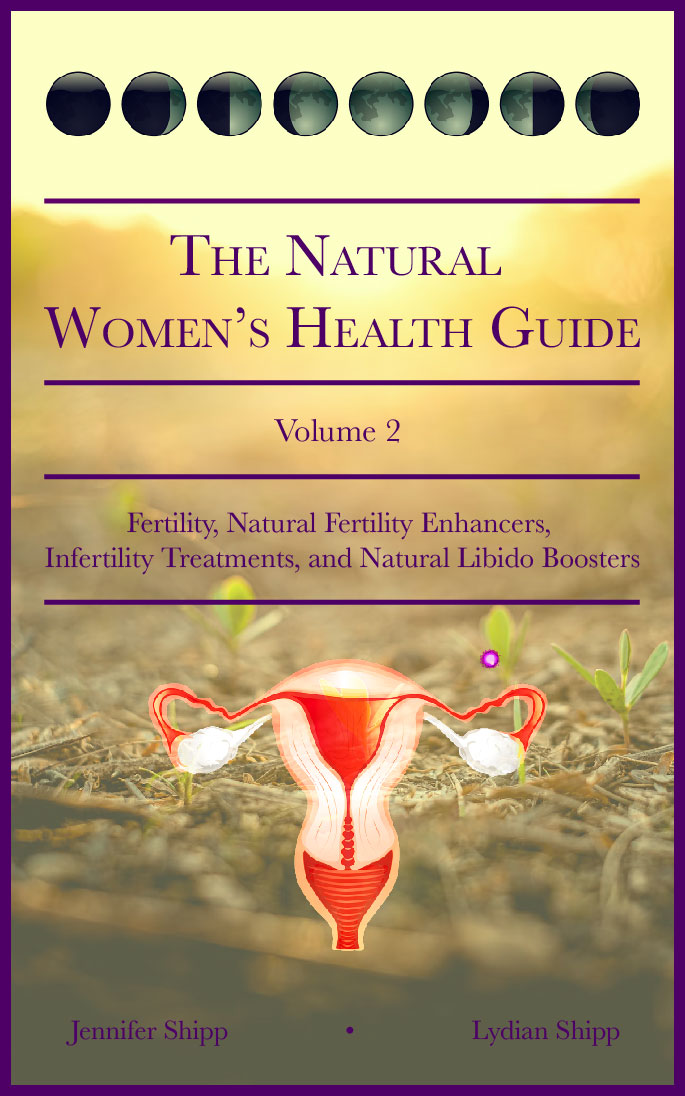How N-Acetyl Cysteine Safely and Naturally Boosts Male and Female Fertility
 N-Acetyl-Cysteine, also known as NAC offers a wide array of fertility-enhancing effects on the body. NAC is broken down into the most powerful antioxidant in the body, glutathione. In fact, taking NAC supplements is one of the best ways to get an extra dose of this all-important, health promoting substance called glutathione. Glutathione in other forms is often unstable or not easily absorbed by the stomach.
N-Acetyl-Cysteine, also known as NAC offers a wide array of fertility-enhancing effects on the body. NAC is broken down into the most powerful antioxidant in the body, glutathione. In fact, taking NAC supplements is one of the best ways to get an extra dose of this all-important, health promoting substance called glutathione. Glutathione in other forms is often unstable or not easily absorbed by the stomach.
NAC ranks high as a good supplement to take when trying to get pregnant. It can be used to safely boost fertility and it can also be taken throughout pregnancy to help prevent preterm birth. NAC works by thinning the mucus in the vagina and also by thickening the endometrial lining in the uterus, but scientists have identified several other mechanisms of action through which NAC promotes fertility.
NAC for Infertility
Scientists began studying NAC after they realized that it has the ability to thin cervical fluids, making it easier for sperm to make their way into the uterus and fallopian tubes to fertilize an egg, but NAC also promotes normal ovulation. Studies have shown that NAC can benefit couples with unexplained infertility and it can increase fertility in both men and women. Studies have specifically shown that NAC can improve fertility in women with PCOS (Polycystic Ovarian Syndrome), but doctors have noted improved fertility in men who are taking NAC too. In addition to its specific fertility-enhancing properties, NAC also has the following general biological effects that are important for both men and women if you’re trying to conceive:- Thins bodily fluids in the lungs and in the vagina
- Anti-apoptotic
- Protection against blood clots in the brain (focal ischemia)
- NAC aids insulin sensitivity (a problem that’s common in women with PCOS)
- Thickens the endometrial lining in the uterus (the endometrium becomes the placenta after conception occurs)
- Antioxidant
- Inhibition of phospholipid metabolism (which may be disrupted in infertile men or women)
- Protease activity
- Proinflammatory cytokine release
Studies on the NAC supplement and fertility have found that female patients who take an NAC supplement at 600-1200 mg per day produce a significantly higher number of follicles. The pregnancy rate for women taking NAC is also significantly higher.
NAC is an affordable, effective, and safe supplement to improve fertility. It induces ovulation and also thins the mucus in the vagina during ovulation to make it much easier for the sperm to reach the egg. When women enter their fertile phase each month, their cervical fluid becomes thinner and more stretchy, much like the consistency of an egg white to make it easier for sperm to easily swim up to meet the egg. But women who have poor nutrition or who are taking certain prescription or over-the-counter medications may not experience these changes in their cervical fluids at the time of ovulation. Rather, the fluid remains thick and “hostile” to pregnancy and fertilization.
NAC vs. Guaifenesin for Fertility
IMPORTANT NOTE: Some common products/brand names containing guaifenesin, such as Mucinex, also contain “dextromethorphan Hbr”. That “Hbr” stands for “hydrobromide”, meaning that drugs containing dextromethorphan Hbr ultimately contain bromine. Here is a list of other pharmaceutical drugs that contain bromine. Bromine is toxic to the body and interferes with iodine absorption. Because we’re discussing fertility here, it’s important to also note that iodine deficiency/bromine toxicity is especially bad when it comes to matters of fertility in both men and women. You can read about this connection between fertility and iodine deficiency/bromine toxicity here.Some fertility doctors recommend that women use products that contain Guaifenesin, a synthetic pharmaceutical that’s often combined with other unhealthy ingredients in some over-the-counter and prescription medications used for colds or flu. Guaifenesin is the active ingredient in products like Mucinex. It has effects that can improve both male and female fertility. These fertility boosting effects are similar in some respects to what NAC does in the body, except with potential side effects (like difficulty sleeping), dizziness, headache, and low blood pressure.
Below we compare NAC and Guaifenesin for infertility so that readers can make an informed decision about these two substances. Doctors are much more likely to prescribe Guaifenesin than NAC for fertility simply because Guaifenesin is a pharmaceutical that’s more familiar to doctors. NAC, on the other hand, is a nutritional supplement that can boost general health in addition to improving fertility. Continue reading to learn more about these two substances and their role in boosting fertility.
Guaifenesin to Improve Female Fertility
Dr. Jerome Check, head of the division of Reproductive Endocrinology and Infertility at Cooper Medical School in Camden, New Jersey was co-discoverer of Guaifenesin’s role in aiding fertility. The ingredient Guaifenesin is widely known for its ability to loosen chest congestion, but like NAC, it can also thin cervical fluids. Scientists discovered that it could help women get pregnant back in 1982, but this breakthrough wasn’t followed up by the scientific community, perhaps because more complex fertility treatments are much more profitable for Big Pharma and The Healthcare Industry and it simply didn’t make sense profit-wise for pharmaceutical companies to fund research into a drug that is widely available and quite affordable to couples who are trying to conceive. Also, there are a lot of herbal treatments like NAC that are not only harmless, but even beneficial to a woman’s health. Allowing scientists to do research on Guaifenesin and publish their findings was too risky. If couples found out that they could thin cervical fluids on their own using readily available substances like Guaifenesin or NAC and perhaps conceive more easily without having to undergo painful, humiliating, or risky procedures, they might lose a substantial number of customers at their fertility clinics. This is why you may never have heard of Guaifenesin as a fertility treatment or the even more healthy fertility treatment option, NAC. Some scientists say that the problem of thick cervical fluids during the time of ovulation is the reason behind unexplained fertility in 3-5% of cases in women.Be aware that Guaifenesin may be combined with antihistamines like pseudoephidrine or loratidine in products that are available over-the-counter. Read the ingredients list carefully. Antihistamines include a class of medications that end with the suffix -ine and they tend to decrease blood flow to the reproductive organs, lowering libido and also sometimes causing infertility. Men are particularly affected by the use of antihistamines (which are commonly prescribed for allergies, colds, or flu) because antihistamines can cause Erectile Dysfunction. But in women, antihistamines can lead to lower libido and an inability to achieve orgasm.
Guaifenesin to Improve Male Fertility
Anecdotal reports by doctors have indicated that infertile men may sometimes be able to conceive with Guaifenesin treatment using extended release tablets at 600 mg two times per day (1200 mg total per day). It can take several months of Guaifenesin treatment to see improvement in sperm count and motility and because this treatment hasn’t been scientifically studied, doctors still aren’t sure why it works.Taking Guaifenesin daily over the course of several months can be challenging because it can cause difficulty sleeping or other health or sexual issues over time depending on the product that you use. But NAC has been shown to have similar, positive effects on sperm count, quality, and motility while generally boosting men’s overall health. NAC won’t interfere with sleep. Scientists speculate that NAC works by improving sperm quality by combating reactive oxygen species. They credit NACs super-strong antioxidant properties as the underlying mechanism by which it can improve male fertility rates. Like Guaifenesin, NAC treatment may take some time to work. The recommended dose is between 600-2400 mg of NAC daily to improve fertility in men.

Guaifenesin for Fertility: Final Analysis
Guaifenesin is a synthetic drug that was created from the guaiac tree, a plant that was used by Native Americans for a variety of health reasons. Guaifenesin was first removed from the plant and then chemically altered in the laboratory to produce a patentable substance that Big Pharma could sell at a profit in 1912. Since that time, it’s been used to treat respiratory diseases. It was approved for over-the-counter use in 1989 by the FDA.Guaifenesin Side Effects:
- Dizziness
- Drowsiness
- Difficulty Sleeping
- Muscle Relaxation
- Nausea
- Stomach Cramps
- Headache
- Constipation
- Low blood pressure
- Dry Mouth
- Vision changes
- Excessive sweating
- Decreased appetite
NAC for Fertility: Final Analysis
NAC is a safer and healthier bet than Guaifenesin for the treatment of infertility in both men and women. NAC is a naturally-occuring substance that has not been modified in a laboratory in the same way that Guaifenesin has. NAC won’t keep you awake at night and in fact, it may very well benefit your mental state while you’re trying to build a family. NAC has been scientifically studied for its role in promoting mental health particularly in the realm of addiction, obsessive or compulsive behaviors, and even schizophrenia. Additionally NAC has a variety of health benefits, not just fertility enhancement.If you take nitroglycerin, do not take NAC because these two substances interact negatively to cause low blood pressure and headaches. For fertility issues, start with 1200 mg daily and add another 600 mg per day after 1 week of treatment.
NAC is a safer and healthier option than Guaifenesin for boosting fertility. Because NAC and Guaifenesin have not been studied together to examine how they interact, it would be wise not to combine these two treatments, but rather choose one or the other for increasing fertility. For women, NAC is a much better choice than Guaifenesin because it can safely be used throughout pregnancy to prevent preterm birth.

 The Natural Women's Health Guide, Volume 2 - Fertility, Natural Fertility Enhancers, Infertility Treatments, and Natural Libido Boosters - BUY HERE!
The Natural Women's Health Guide, Volume 2 - Fertility, Natural Fertility Enhancers, Infertility Treatments, and Natural Libido Boosters - BUY HERE!
Resources:






















